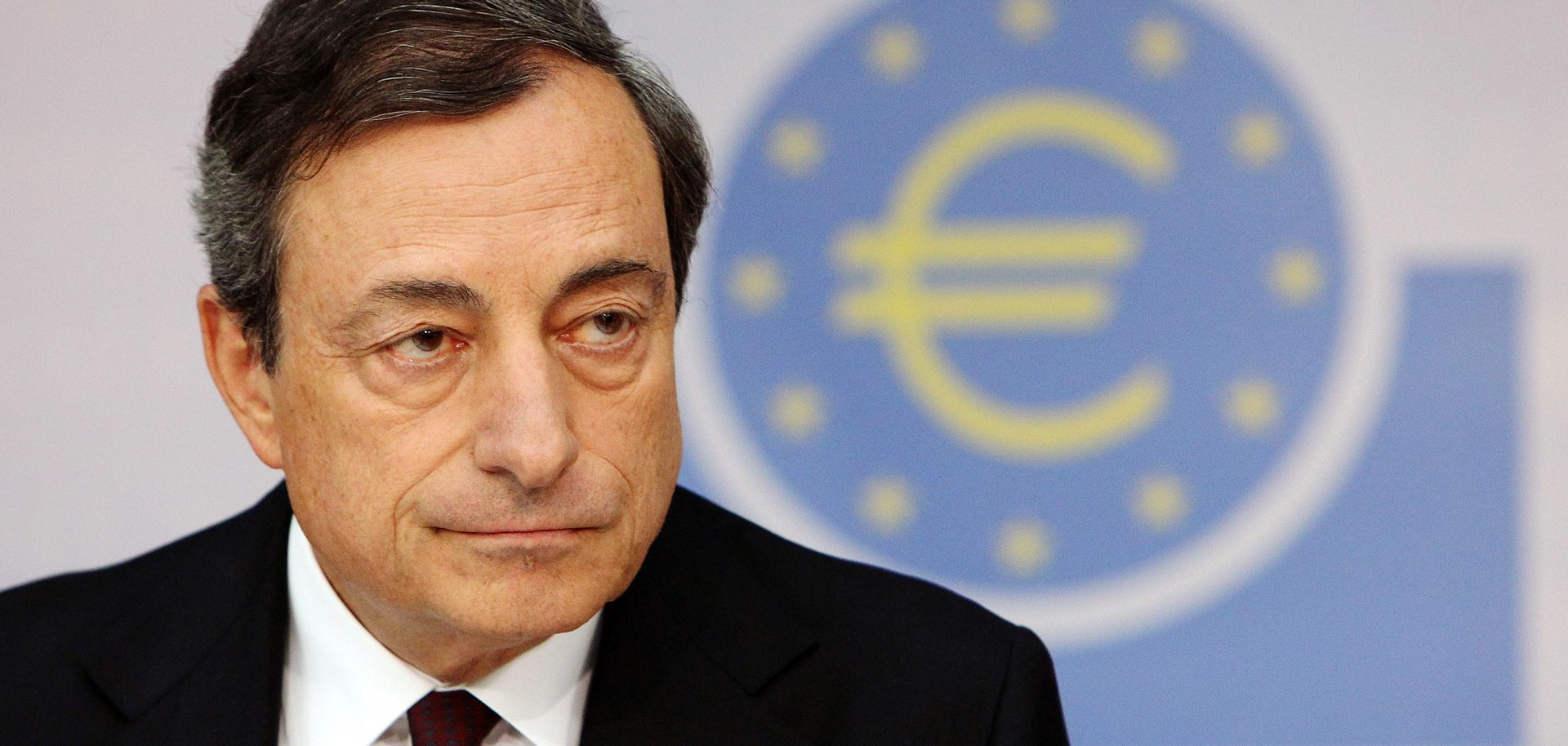ASSESSMENTS
Investment Emerges as the Solution to Europe's Economic Woes
Sep 12, 2014 | 09:32 GMT

(DANIEL ROLAND/AFP/Getty Images)
Summary
Economic growth in the eurozone has slowed, but since the bloc cannot agree on what caused the slowdown, it is having a hard time finding a solution. Germany believes the eurozone has too much debt, but countries in Southern Europe blame low demand — an increasingly popular theory that now appears to have been validated by Mario Draghi. The European Central Bank chief recently suggested that there should be a loosening of fiscal policy in the Eurozone, a shift that would all but guarantee an increase in investment.
It is unclear where the investment would take place. Germany, with its recent history of low investment and low wages, is the obvious choice. More investment in Germany would have the added benefit of raising inflation rates, easing pressure on competitiveness in some of the more fragile eurozone economies. Berlin would oppose new policies that promote investment, but the only alternative — having the European Central Bank buy peripheral sovereign debt as part of quantitative easing — is completely unacceptable, so the Germans may ultimately see this as the lesser of two evils.
Subscribe Now
SubscribeAlready have an account?
